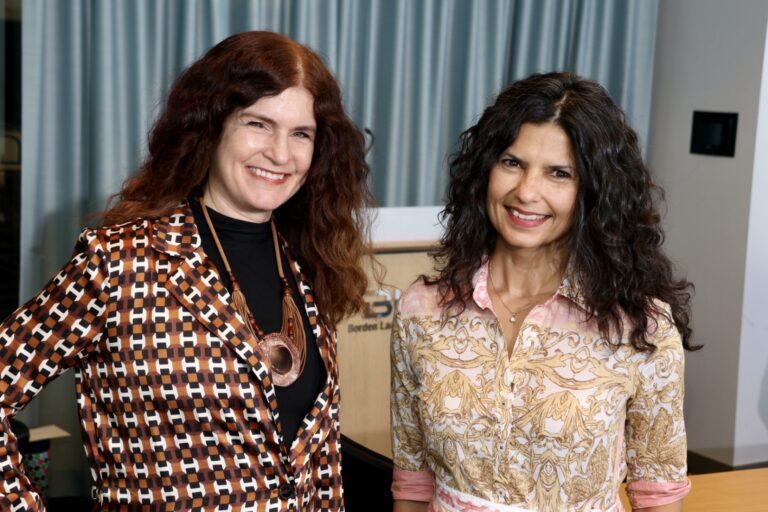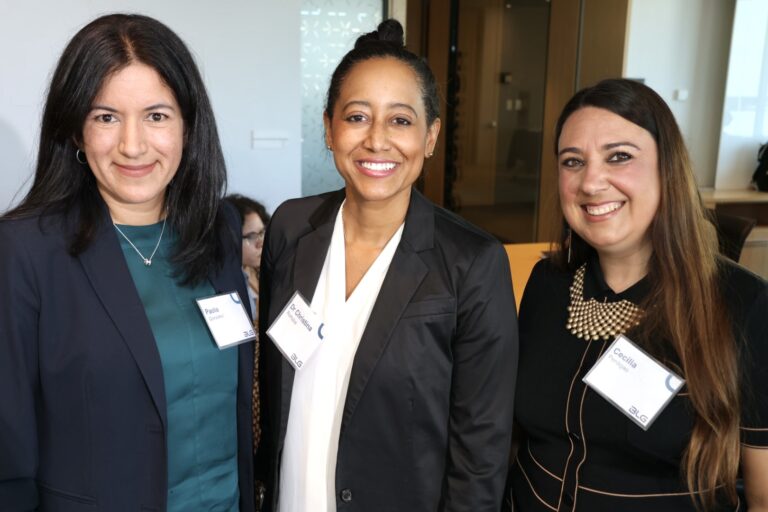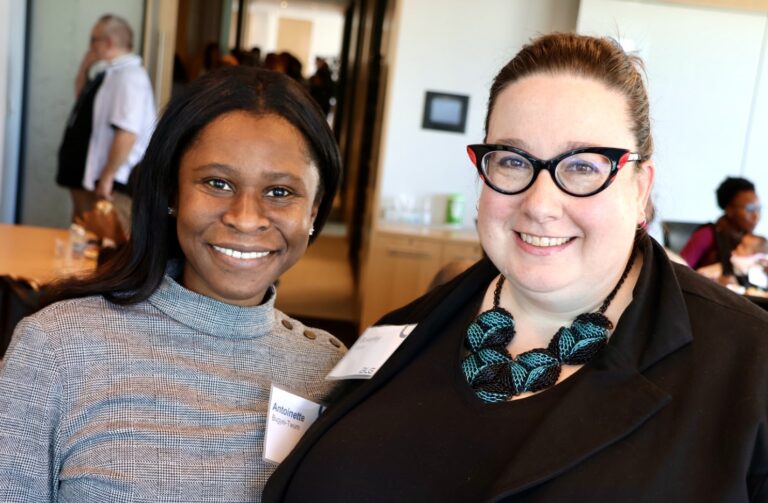There are power lunches, and then there are empowerment lunches, like the one hosted and sponsored Monday by Borden Ladner Gervais LLP at the downtown Ottawa office of the national law firm.
With Ottawa-based entrepreneur Mante Molepo as the special guest, it was a fitting way to kick off International Women’s Day, week and month. It was also an opportunity for BLG partner and family law specialist Katherine Cooligan to promote the Women’s Business Network, a volunteer-driven organization she’s helping to rebuild and strengthen as it recovers from the pandemic. She’s taken on the role of vice-president of strategic initiatives.
Cooligan, who’s a tremendous champion of women, was scooped up for the position by WBN’s new board president, Christina Nesrallah. Cooligan was the first woman and first family law lawyer to become regional managing partner of the Ottawa office of BLG. Now in that role is civil litigator Larry Elliot, who briefly popped into the luncheon.
OBJ360 (Sponsored)

Care, Serve, & Give: Dr. Helen Tang is redefining what it means to lead with purpose
Dr. Helen Tang is a dynamic and multifaceted leader whose passion for community and philanthropy is at the heart of everything she does. As a devoted mother of two and

Care, Serve, & Give: Dr. Helen Tang is redefining what it means to lead with purpose
Dr. Helen Tang is a dynamic and multifaceted leader whose passion for community and philanthropy is at the heart of everything she does. As a devoted mother of two and
Dozens of women listened with interest as Cooligan spoke with Molepo about her career journey from international trade lawyer with the federal government to founding her own eponymous consulting firm.
The pair has known each other for years, ever since Molepo was an articling student at BLG and Cooligan a mentor.
Molepo now works with governments, non-profit organizations and companies to address equity, inclusion, and anti-racism. She also volunteers in the community, serving on The Ottawa Hospital’s board of governors.

Attendees heard how Molepo left her trade law job after feeling torn between her career and her young family. She acknowledged that she felt “a tremendous amount of sadness” when she first stepped away, knowing how much time, money and energy she had invested into becoming a trade lawyer. Her grief was compounded by the sudden loss of her father, who’d been a former activist in South Africa’s anti-apartheid movement.
These days, Molepo is extremely grateful for how her career turned out. “When I look back now, I see how many opportunities the change opened up for me.”
In 2016, Molepo helped to found Parents for Diversity, motivated by her own child’s experience with forms of anti-black racism at school. She realized, following a meeting with then-Attorney General of Ontario Yasir Naqvi and a group of Black parents, that others were in the same boat but didn’t know how to advocate for their children or how to navigate the school system. Parents for Diversity is committed to achieving inclusive and non-discriminatory learning environments for all children.
In 2019, she became the first equity and diversity adviser for the Ottawa Catholic School Board.
That same year, the mother of two daughters launched her consulting business. Recently, she presented to a board in Toronto that included international legal scholar and academic leader Stephen Toope. “To be once a former student of this incredible, brilliant mind and then to work with him and advise him,” she said of the proud career moment.
In 2022, Molepo was also named Innovator in Residence with the Ontario Bar Association to lead the association’s new career accelerator program for Indigenous and racialized lawyers.

Molepo voiced concern at the luncheon that not enough organizations are having proper conversations about racism in the workplace. “I’ve been in meetings where people can’t even say the word ‘Black person’ or ‘racialized’ and, for me, if you’re leading organizational change, that’s always a red flag; it means you don’t know what to do.
“We have to start feeling comfortable talking about race and racism.”
There’s also the issue of individuals not feeling heard when they share their experiences with racism, she said. “Our knee-jerk reaction may be to say, ‘I don’t think they meant it that way’, or ‘You may have misinterpreted’, or ‘You’re being too sensitive’, but I think what we need to do is validate our colleagues’ experiences, hear what they have to say, and then do the internal work of understanding what racism looks like, so that when people experience it, we know how to identify it.
“We can’t achieve racial equity if we’re not first acknowledging that racism is actually a problem.”
As for gender equality, she believes too many institutions are set up for men and by men. “We see that women are appointed or elected to boards but they don’t stay, and that’s primarily because they don’t focus on retention, they don’t focus on changing the structure of the institutions to foster equality and inclusion for women,” said Molepo, who counts former first lady Michelle Obama and Ketty Nivyabandi, secretary general of Amnesty International Canada, among the women who inspire her.
She also spoke about the “glass cliff” phenomenon, in which women – particularly racialized women — are promoted to higher positions during times of crisis but are set up to fail. “It’s important as women that we have something to fall back on,” she said of the need for an exit strategy.
When asked to look to the future, Molepo said leaders need to sustain the momentum of change currently happening. “We always have to remind ourselves, ‘What can I be doing to make it easier, to make it better to advance D.E.I. (diversity, equity, inclusion)?’
“I think that’s all of our responsibility.”












caroline@obj.ca





